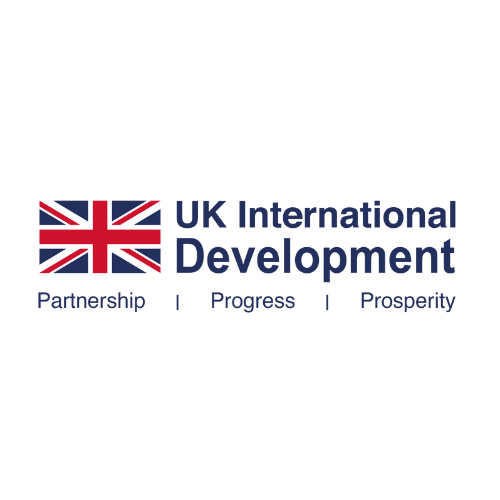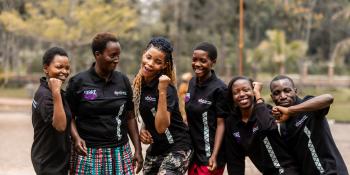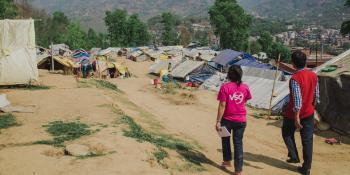
In 2019, VSO Pakistan identified the rights of people with disabilities as a policy focus and helped to draft a Disability Act which would ensure the rights of people with disabilities through democratic, rights-based and inclusive legislation. This was the first law in the history of Pakistan to specifically protect the rights of people with disabilities, and its implementation has improved the lives of people with disabilities and allowed for their greater participation at all levels of society.
Contributing to policy outcomes
VSO Pakistan used evidence from its programmes, as well as recommendations from a series of community dialogues, to influence the development of a disability rights bill in Pakistan, known as the ‘Islamabad Capital Territory (ICT) Rights of Person with Disability Act’.
In order to do this, we worked with a civil society partner, the Potohar Mental Health Association (PMHA), a disability rights-based organisation and its network members to develop key messages and policy recommendations to influence the Disability Act.
VSO worked closely with PMHA to translate the draft Disability Bill into Urdu and facilitated community dialogues in different communities across Pakistan to incorporate the views of groups including marginalised women, young people, transgender individuals and those with disabilities.
Roles of partners, volunteers, and primary actors
VSO helped the PMHA to lead coordination with other disability rights organisations and to mobilise national media on disability issues and needs in the country. The PMHA worked to coordinate national events involving the presence of representatives from government, political parties, civil society and primary actors. It also translated the draft disability bill into Urdu, so that primary actors were able to effectively participateand contribute during consultation meetings.
During five consultation meetings, each involving around 40 participants, primary actors including marginalised women, youth, members of the transgender community, and people with disabilities shared the issues, challenges, and stigma that they have faced in their communities, helping to form recommendations which would feed into the draft bill.
In order to carry out the community consultations, VSO recruited two national volunteers and five community volunteers, who facilitated dialogues and worked to generate evidence and recommendations based on the perspectives and voices of primary actors. The national volunteers trained the community volunteers, and the engagement of community volunteers, with thei links to local communities and shared cultural context, meant the discussions were open and smooth, with local people feeling comfortable to
share their issues and problems in the form of open dialogue.
Policy outcomes
Through these consultations, VSO Pakistan and its partners developed 23 policy recommendations, related to the political participation of persons living with disabilities, through to equity in education, equality before law, ease of access and mobility, and protection from violence and discriminatory behaviour. Through lobbying and media mobilisation aimed at Parliamentarians, government actors and political parties, VSO succeeded in getting 13 of these recommendations incorporated into the Act, via the mechanism of the Standing Committee on Human Rights National Assembly of Pakistan.
Impact on the lives of Pakistanis
We consider the Disability Act to be a milestone in the history of Pakistan, and a vital instrument to make Pakistani society more inclusive and to ensure a continued government commitment to inclusion for people with disabilities.
The Act provides a legal framework for people with disabilities to access equality before the law, the right to privacy, ease of access and mobility to public buildings and institutions, protection from violence and discrimination linked to their status as disabled, and equality within employment, education and healthcare. It grants rights to disabled people to live independently in their communities, the right to a home, a family and to own property, freedom of expression and information, rights to political participation, access to justice, and rights to participation in sports, cultural and recreational activities.

While the provisions of the Act continue to be implemented, VSO along with its partners is continuing to advocating for the full implementation of the Disability Act, which will impact on the lives of over three million people with disabilities in Pakistan.
These key policy recommendations were then submitted to the National Assembly of Pakistan for their inclusion in the Disability Act, and we facilitated a series of lobbying meetings and dialogues with representatives from political parties, Parliament and government, and organised media coverage in order to put pressure on politicians to include civil society recommendations in the Act.
This work is funded by UKAid under the ‘Volunteering for Development’ programme which seeks to improve access to basic services and opportunities, increase the agency of extremely poor and vulnerable people and build their resilience to the shocks and stresses that threaten their advancement from poverty.
Find out more

Influencing and advocacy
VSO influences policy at national, regional and international levels. We bring the experience of volunteers, partners and marginalised people to decision makers.

UK Aid Volunteering for Development
Driving volunteer impact to deliver improved health, education and livelihoods outcomes for two million people.
